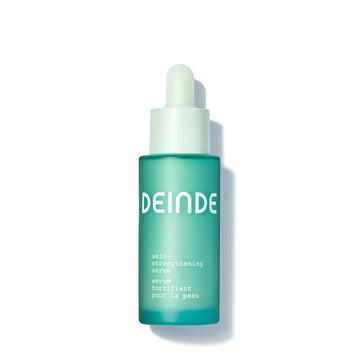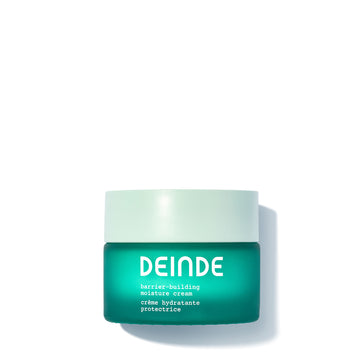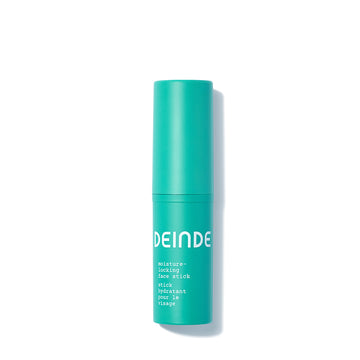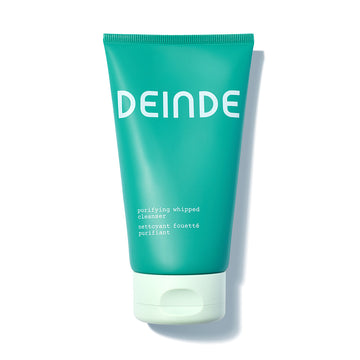
Your Guide to the 8 Best Vitamins for Skin
Whether you put them on your plate or slather them all over your face, the best vitamins for skin can boost glow, keep your barrier function strong, and help clear your complexion. You’re already familiar with the most popular ones, like vitamin C and vitamin B3 (your friend, niacinamide). But there’s a whole lineup of lesser-known vitamins that can do a lot for your skin.
To compile the ultimate guide to vitamins for skin health, we polled dermatologists on the ones worth adding to your daily routine. From acne to hyperpigmentation to overall texture, there’s a vitamin to pair with every skin need. Read on for the full rundown.
Diet vs. Supplements vs. Skincare: How To Take Your Vitamins for Skin
You have three options for loading up on skin-friendly vitamins, but dermatologists recommend getting your intake through your diet and skincare rather than relying on dietary supplements—especially if you haven’t cleared it with your primary care doctor.
“For supplement doses, you need to be careful because some people may have adequate levels and other people may have deficiencies,” Joshua Zeichner, M.D., F.A.A.D., a board-certified dermatologist and director of cosmetic & clinical research in dermatology at Mount Sinai Hospital in New York, previously told DEINDE. “Even though it may be over the counter, it does not mean that a product is necessarily safe to take.”
A prime example is vitamin A, which can cause side effects if you take too much in supplement form. According to Dr. Zeichner, too much of this ingredient as an oral supplement can “cause skin dryness, affect your vision, increase the risk of sunburn, and even lead to liver toxicity and increase cholesterol.”
- Claire Chang, M.D., a board-certified dermatologist at UnionDerm in New York, also notes that the data behind supplements for skin is still lacking. “It is unclear that supplementation will help with skin specifically unless you are actually deficient in these nutrients—and excess levels of certain vitamins can actually cause issues,” she previously told DEINDE.
Your diet, on the other hand, can play a key role in skin health. Dr. Chang says a nutrient-dense diet can impact “everything from hydration and skin elasticity to the incidence of inflammatory skin conditions like acne and eczema.” Experts recommend prioritizing “vitamins, proteins, and healthy fats” if you want to help balance your skin. Want to know which foods make the cut? Check out our guide to the 11 best foods for skin health.
When it comes to your skincare routine, studies show that vitamins demonstrate clear benefits for skin when applied topically. Vitamins have antioxidant properties, which means they can help support your complexion and skin cells during free radical damage and counteract irritation. Infused in your serums and moisturizers, they’ve shown effectiveness in treating everything from photoaging, to breakouts, to pigmentation issues.
What Are the Best Vitamins for Skin?
From vitamin A to vitamin K, here are eight of the best vitamins for skin—and what their skin health benefits are.
Vitamin A
Along with vitamin C, vitamin A is probably the vitamin you’re most familiar with in skincare. You may know it by another name: retinol. In skincare, you’ll find more active percentages of the ingredient in prescription-only retinoids like tretinoin. It’s also the first vitamin approved by the FDA as an “anti-wrinkle agent” in the form of retinoids.
You can find non-prescription versions of this vitamin in plenty of skincare products in the form of retinol or retinal. Its main benefit? Supporting cellular turnover.
When you apply retinol topically, studies show that it can penetrate your skin, where it undergoes a conversion to retinoic acid, thickens your epidermis, and supports healthy collagen production. Visibly, you’ll notice its effects on signs of aging like wrinkles, fine lines, pigmentation, skin texture, and even breakouts.
Topical vitamin A is a powerful ingredient but also comes with potential side effects, which may show up more as you use higher concentrations. The most common ones include dryness, redness, and peeling, particularly as your skin starts adjusting to the ingredient.
Retinol products usually come with a warning to apply only at night, since they can make your complexion more sensitive to the sun during the day.
Vitamin B3 and B7 (H)
Vitamin B exists in multiple forms, but the ones you’ll see most often in skincare are vitamin B3 (commonly known as niacinamide) and vitamin B7 (known as biotin).
Niacinamide is known for its ability to help clear pores and refine uneven skin texture—and plays well with other ingredients, which is why you’ll find it in our skin-strengthening serum as an overall texture targeter.
Research shows that niacinamide in skincare can also help ease breakoutsbecause of its soothing effects and ability to support balanced sebum production. If you want to add it to your diet, you can get it through eggs, milk, and legumes.
Niacinamide isn’t the only way you can add vitamin B to your skincare shelf: Don’t forget about biotin, a popular vitamin for hair, skin, and nails. (Along with B7, you may also see biotin as vitamin H, so consider that another vitamin added to your lexicon.)
Studies suggest that biotin can “play a role” in improving hair loss, brittle nails, and skin conditions like seborrheic dermatitis, which is why you’ll find it as an ingredient in all three product categories. To add it to your diet, focus on protein-rich foods like egg yolks, milk, nuts, and grains.
Vitamin C
If vitamins got awards for popularity, this one would come in first place. Whether it comes in the form of fruit extracts or ascorbic acid, vitamin C is a powerful antioxidant with known brightening and collagen-stimulating properties. It’s “essential for collagen production, which keeps skin firm and elastic,” says Dr. Chang. When you have a vitamin C deficiency, it can show up as “fragile skin, easy bruising, and keratosis pilaris.”
Dermatologists recommend adding vitamin C to your daytime skincare routine because it can help defend against free radical damage. In ascorbic acid form, it usually appears in concentrations up to 20%.
If you have sensitive skin, start at a lower percentage. And even if you don’t, you shouldn’t go beyond this number; studies show that vitamin C formulations above 20% don’t necessarily work any better and come with a higher risk of irritation.
Vitamin D (Specifically D3)
You get most of the vitamin D3 you need from a small amount of daily sun exposure—but that doesn’t mean you should ever skip your sunscreen. Studies show that UVB supplies “more than 90%” of your daily vitamin D3 requirement.
In skin, this vitamin is a key building block for your skin barrier and hair follicles, and low levels of D3 can lead to inflammatory skin conditions. As we age, our skin becomes less able to produce vitamin D3, so consider adding more to your diet with sources like fatty fish and egg yolks.
Vitamin E
A true team player, vitamin E does its best work when combined with vitamin C. This soothing ingredient also works to protect your skin during exposure to free radical damage and oxidative stress from UV rays.
“Vitamins C and E are potent antioxidants that actually work better when taken together rather than taking one or the other separately,” says Dr. Zeichner. That’s why you’ll sometimes see them used together in skincare, although both ingredients can be tricky to stabilize, especially when exposed to air and light.
In stable formulations, this pairing has been shown to help support your skin against UV damage and photoaging. Another way to boost vitamin E levels is through your diet with food sources like nuts, spinach, whole grains, olive oil, and sunflower oil.
Vitamin F
Vitamin F stands apart from the other vitamins on this list when it comes to glowing skin. That’s because rather than a “true” vitamin, it’s a combination of omega-3 and omega-6 fatty acids that help keep your natural barrier function in peak shape.
Dermatologists usually suggest getting essential fatty acids through your diet—more on this in our nutrients section below.
Vitamin K
Last on our list is vitamin K, a vitamin linked to several essential functions in the body. In skin, studies typically study its effects on wound healing, where it’s been shown to help support the healing process.
Vitamin K can also help brighten skin when applied topically, which is why dermatologists recommend it for under-eye care (although vitamin C is more commonly found in eye creams and serums).
What Are Other Beneficial Nutrients for Skin?
While the nutrients below aren’t vitamins, they’re also essential building blocks for skin, whether you get them through your diet or in your favorite topicals. While you’re stocking your daily routine and diet with vitamins, we recommend adding these in, too.
Gamma Linoleic Acid (GLA)
Gamma linoleic acid (GLA) is essential to keeping your skin barrier (the outermost layer of your skin that keeps external stressors out and moisture locked in) strong. “Studies have shown that consumption of high levels of GLA helps improve skin barrier function and hydration,” says Dr. Zeichner.
“It plays a role in brain function as well as healthy skin and hair growth.” Because our bodies don’t make GLA, we need to get it through our diet. Nuts like walnuts, almonds, and cashews are rich in linoleic acid, an omega-6 fatty acid that our bodies convert to GLA.
Omega-3 Fatty Acids
Omega-3 fatty acids are another essential fatty acid for skin barrier function that Dr. Chang advises adding to your diet with “fish, flaxseeds, and walnuts.”
There’s also some evidence that adding it to your diet can help certain skin conditions, but further clinical studies are needed. “While the jury is still out, it may help to improve inflammatory skin conditions like psoriasis, acne, and eczema,” she says.
Polyphenols
You may already be familiar with polyphenols through our hero ingredient, Naringenin, which is derived from polyphenols like those typically found in citrus peels.
These antioxidants “serve as a fire extinguisher to put out damage caused by free radicals caused by environmental exposures such as UV light and pollution,” says Dr. Zeichner. You’ll find Naringenin in our skin-strengthening serum, moisture-locking face stick, and barrier-building moisture cream.
This list may look long, but by incorporating some in your skincare and others in your daily diet, you can easily create your own beauty-boosting multivitamin. Just grab your niacinamide-infused serum, eat a handful of nuts, and you’re already well on the way to treating your skin to its daily dose of vitamins.
Sources:
Vitamin B group levels and supplementations in dermatology | PMC
Human Skin Aging and the Anti-Aging Properties of Retinol | PMC
Retinoids: active molecules influencing skin structure formation in cosmetic and dermatological treatments | PMC.
Topical Vitamin C and the Skin: Mechanisms of Action and Clinical Applications | PMC
The Impact of Vitamin D on Skin Aging | PMC
Meet the Experts
Claire Chang, M.D. is a board-certified and fellowship-trained cosmetic dermatologist at UnionDerm in New York. She specializes in cutaneous laser treatments, facial and body contouring, and injectable treatments. Dr. Chang is an expert in skin of color and Asian beauty trends, and she frequently travels back and forth from Asia to bring the latest cosmetic trends to her patients. She has published numerous articles in peer-reviewed journals, written multiple dermatology book chapters, and presented her research at several national dermatology meetings. She is a member of the American Academy of Dermatology, American Society of Dermatologic Surgery, American Society for Laser Medicine and Surgery, and the Women’s Dermatologic Society. She also serves as a clinical instructor of dermatology at the Mount Sinai Medical Center.
Joshua Zeichner, M.D., F.A.A.D., is an Associate Professor of Dermatology and the Director of Cosmetic & Clinical Research in Dermatology at Mount Sinai Hospital in New York City. He is one of the country’s key opinion leaders in treating acne and rosacea, and is an expert in cosmeceuticals, skin care, and cosmetic dermatology. As an educator, Dr. Zeichner teaches dermatology residents and regularly lectures to international audiences at the major Dermatology meetings. His work has been published in the top peer reviewed dermatology journals, and he can be found quoted across national media.








